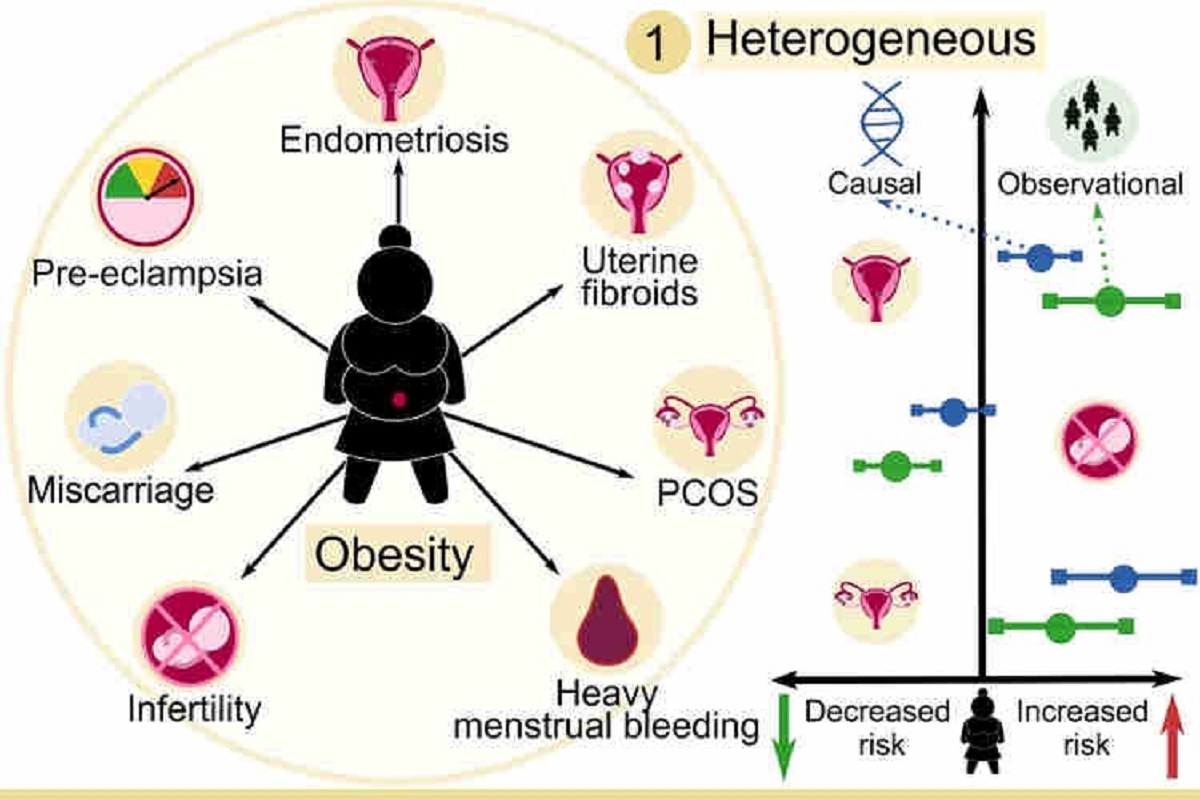
A study conducted by researchers at the University of Oxford suggests a causal link between obesity and a range of women’s reproductive diseases, but the extent of this link varies between conditions. Although fertility disorders are common conditions that affect the health and well-being of many people, the role of obesity in developing women’s fertility conditions has not been studied. The article, “Obesity and risk of female reproductive conditions: a Mendelian randomization study,” is published in PLoS Medicine.
Obesity is associated with increased risk of female reproductive conditions. Our work shows that the estimated genetic and observational effects of obesity on different reproductive conditions are heterogeneous and partially mediated by hormones. We also see that reproductive disorders cluster with the common genetic effect of obesity. Credit: Samvida S. Venkatesh, CC BY 4.0 (creativecommons.org/licenses/by/4.0/)
To examine the causal relationship between obesity, metabolic hormones, and female reproductive disorders, researchers conducted a Mendelian randomized study of 257,193 women of European ancestry aged 40 to 69 years. They accessed records from the UK Biobank, a large-scale biomedical database containing medical, environmental and genetic information on participants.
The researchers then developed a statistical model to estimate the relationship between body mass index and waist-to-hip ratio with the risk of many reproductive diseases in women, including endometriosis, heavy menstrual bleeding, preeclampsia, and infertility.
Researchers have found an observational link between obesity and a range of female reproductive disorders, including uterine fibroids, polycystic ovary syndrome, heavy menstrual bleeding, and preeclampsia. They also found that some inherited genetic variations associated with obesity are also associated with reproductive disorders in women, but the strength of this association varies by type of obesity and reproductive conditions.
This study had several limitations, such as the low prevalence of female reproductive disorders among participants, and the lack of data on body mass index and waist-to-hip ratio before disease onset.
"We provide genetic evidence that general obesity and central obesity play an etiological role in a wide range of female reproductive conditions, but the magnitude of this association varies considerably between conditions," the authors wrote. Our results indicate the need to investigate the mechanisms. Mediation of the relationship between the cause of overweight and obesity on women's health to identify the goals of disease prevention and treatment.
Article source: https://journals.plos.org/plosmedicine/article?id=10.1371/journal.pmed.1003679 

No comment